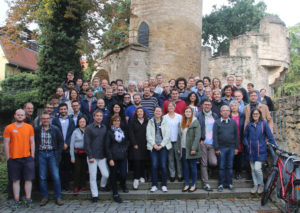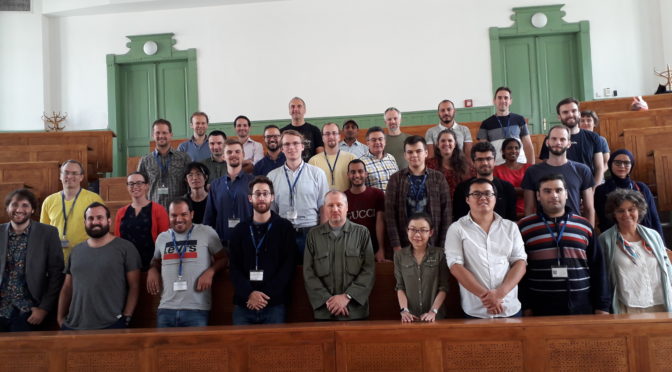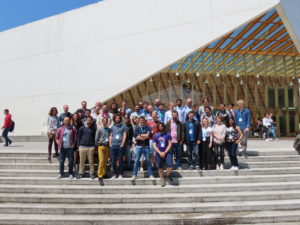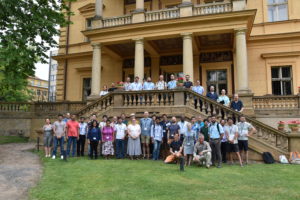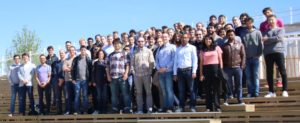24th ETSF Workshop on Electronic Excitations: Light-Matter Interaction and Optical Spectroscopy from Infrared to X-Rays
16 – 20 September 2019
Jena (Germany)
Webpage: http://ws24.pcpm.ucl.ac.be/
Organizers: Claudia Rödl, Gabriele D’Avino, Michiel van Setten, Guido Fratesi, Elena Cannuccia, Carina Faber
Funding and support: Friedrich-Schiller-Universität Jena, Psi-k, Michael Stifel Center Jena, Abbe Center of Photonics Jena, SFB NOA, jenaparadies.de
The 24th ETSF Workshop on Electronic Excitations focused on light-matter interaction and the theoretical description of spectroscopic techniques that nowadays probe electrons, plasmons, excitons, and phonons across different energy and time scales with unprecedented accuracy. A deep physical understanding of the underlying quantum many-body effects is of paramount importance to analyze these experimental observations, extract the wealth of information therein, and ultimately render theoretical simulations predictive.
Continue reading Report on 24th ETSF Workshop on Electronic Excitations “Light-Matter Interaction and Optical Spectroscopy from Infrared to X-Rays”

